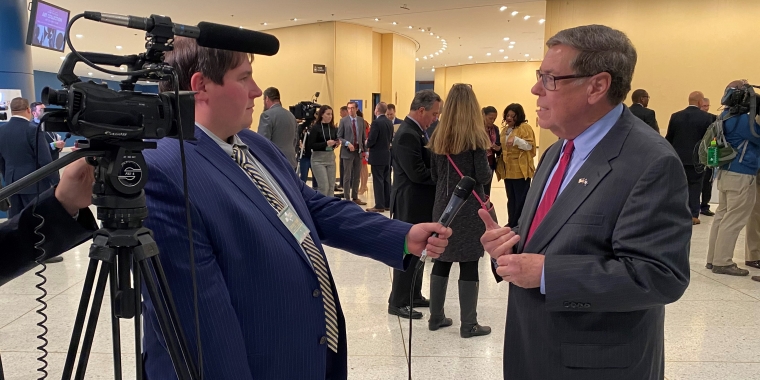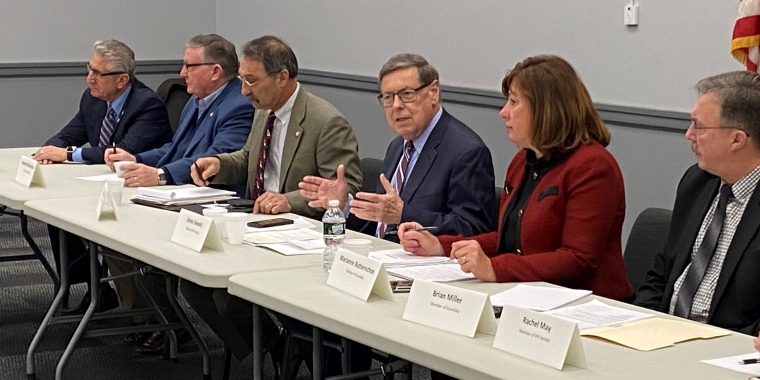
Drug Dealers Protection Act
James L. Seward
March 26, 2009
The Rockefeller Drug Laws, a series of stringent anti-drug measures passed in 1973 which were once considered among the strongest in the nation, were dramatically reformed in December 2004 and August 2005. Now, once again, additional reforms are being considered. These reforms though would do much more harm than good. To put it quite simply this so called reform should be called the “Drug Dealers Protection Act.”
In recent years, New York has developed a number of programs that mitigate the effects of the Rockefeller Drug Laws either by combining elements of “shock” prison programs and treatment with early release or by diverting certain prison-bound offenders into treatment as an alternative to prison. Amendments made to the drug laws in 2004 provided for reduced sentences for nonviolent drug offenders, and expanded “alternative to incarceration” programs aimed at diverting some drug addicts’ treatments so as to allow them to re-enter society as productive citizens. From 2003 to 2007 the percentage of those arrested for drug felonies in New York State that resulted in incarceration dropped from 53 percent to 43 percent, according to the Department of Criminal Justice Services.
One of the most regressive portions of the Democrats’ ill-advised reform is the stripping of power from district attorneys by not requiring their consent to transfer certain cases to drug court and allowing drug dealers and users to have their records conditionally sealed. This is a criminal justice recipe for disaster.
The District Attorneys Association of the State of New York has formally condemned the reform bill. In a letter, Daniel Donovan, president of the association, writes, “We believe the bill does not provide a structure for effective drug rehabilitation programs and fails to adequately protect public safety.” The letter goes on to state that the right balance has been struck by the current drug laws.
The so called “drug-reform” proposal does one thing extremely well. It lets out thousands of felons, returning them to our streets so they can destroy lives, pollute our children’s future and reverse our hard fought successes in stemming the scourge of illegal narcotics on our streets and neighborhoods. The bill under discussion could open up the prison gates for as many as 5,000 drug dealers. These are individuals convicted of serious class B drug felonies and are serving prison sentences for selling significant quantities of illegal drugs including heroin and cocaine. A Daily News editorial says the bill comes dangerously close to decriminalizing even hard core drugs, and contains big breaks for everyone in narcotics chain, from addicts to kingpins.
In so many criminal circumstances, drugs are the root cause. Burglaries, murders, rapes and drive-by shootings can all stem from drugs. Supporters of the Democrat reforms will try to convince you that use of illegal drugs is a victimless crime. Tell that to a mother who lost her child in a drive by shooting involving rival gangs warring over turf to sell nickel bags of heroin. Drugs destroy families and destroy communities.
For several years now, senate Republicans have worked diligently to adopt meaningful drug law reform. This is especially true when it concerns first time, nonviolent felony offenders who merit a second chance; as long as the individual is compelled to participate and complete meaningful substance abuse treatment. At the same time, we have always believed that stiffening criminal penalties for those drug dealers, especially armed drug dealers and those who use children to peddle their “death trade” must not be watered down.
Ask everyday New Yorkers if they would prefer to live in safe neighborhoods, it they want to educate their children in safe school environments, and if they want to live full, productive lives without the scourge of illegal narcotics destroying their families, children, and neighborhoods. The answer to that is obviously yes on all counts. These are the ideals at stake if the drug law reforms are enacted.
Share this Article or Press Release
Newsroom
Go to NewsroomSenate Passes Bills to Increase Limo Safety
January 14, 2020

Statement on Governor's State of the State Address
January 8, 2020

Mohawk Valley Nine Flood Roundtable
January 7, 2020

